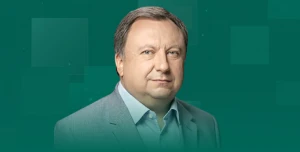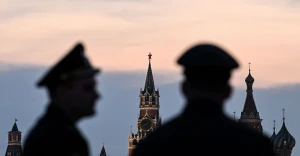
900 days of war. What has changed in Putin's mindset?
The full-scale invasion was driven not only by Putin’s goal to eliminate Ukrainians as a nation but also by his desire to reestablish Russia as a "third pole" on the global stage
Russia's leader wants to die in the presidential chair
1. It should be noted that the full-scale invasion began primarily because Putin saw the war not just as an existential conflict aimed at destroying Ukrainians as a nation, but also as a way to restore Russia's status as a "third pole" in the world. This is the fundamental reason for the war. Without understanding this, it will be difficult to make accurate predictions about the Kremlin's future actions.
2. Now, regarding the changes in Putin's mindset: Prigozhin's march was a turning point for him.
He realized one important thing: the elites fear him so much that he can do anything. In the literal sense of the word "anything."
Before that, he was cautious about many things. Although some might argue that he had free rein before, that wasn’t the case. By 2022, Putin had even become a "collective Putin" at one point, forced to establish a system of collective responsibility. Since Prigozhin's march, one could metaphorically say that a new Putin emerged, offering Russians a new national idea: Putin wants to live as long as possible and die in the presidency.
The focus is no longer on history books or anything else. The central idea of the Russian state now is Putin’s long and untroubled life.
You might ask, what about the third pole idea? That goal remains, but it’s now postponed indefinitely, with the timeline tied to Putin’s life. He understands that Russia cannot become the third pole technologically, given the current era’s advancements. Therefore, his foreign strategy focuses on creating problems for competitors (chaotizing processes) to eventually reinitiate dialogue with Russia. In other words, he will attempt to create issues globally and within rival countries, while demanding negotiations.
And now for the most troubling part for us: Putin understands that he can no longer use Ukraine as a bargaining chip. To initiate dialogue, he will sell the West the myth of influence over the axis of evil. His current strategy is to offer "guarantees" of safety regarding North Korea and Iran, and clear rules in the Sahel, in exchange for ongoing dialogue, part of which will involve lifting sanctions. Sanctions are just one part of this dialogue from Putin’s perspective.
3. Regarding internal affairs in Russia, the main visible change is the "naked party," which has become a Rubicon for the elites. The masses have not fully grasped it yet, but new rules are in place, encapsulated by a Kafkaesque formula: "You don’t know why you will be punished, but you may be punished for anything." The only acceptable behavior in this system is obedience and being "nice to the abuser." This is the fundamental stance of the authorities, which the elites have submissively accepted. Over the year, if things don’t change significantly, the masses will understand this too. They already feel a sharp decline in living standards (two-thirds of Russians have no savings). The authorities are heading toward a situation where even more Russians will live on the brink of poverty.
At the same time, the authorities are not building an oprichnina, as many believe. The Kremlin is constructing a societal structure with a passive half that not only fears the authorities but also submits to them (in Russia, for 400 years, 99% of society has feared the authorities).
This so-called half of society are apologists for the regime, operating within two mythological frameworks: 1) They oppose change, fearing it will lead to even worse conditions (one acquaintance once described the 90s situation, where unpaid workers were told, "Nobody cares about us beyond the gate"). Expanding this base is a key task for the Kremlin. 2) Creating a relatively large minority to be respected for their actions in the war. The main myth of this war will not only be about victories but also money. This group has never had and will never have as much money as they do now. Stopping payments tomorrow will not significantly change their attitude toward Putin (unless external or other internal propaganda machinery intervenes). However, there is a major downside for Putin in all this. Those constructing this model, especially Sergei Kirienko, are thinking not only about Putin but also about his death and the transition of power.
4. Until recently, no oligarch had influence over political processes in Russia. In the current system, the so-called "Kremlin Towers" have lost their primary role. Previously, there were civilized and not-so-civilized discussions between the towers, resulting in Putin having sole arbitration power while the state received "agreed upon" economic, and less frequently, political and geopolitical decisions. Now, the role of the Kremlin towers has diminished to that of the oligarchy: essentially, service roles. Major decisions are increasingly confined to a relatively small circle of people responsible for Putin's security.
In other words, today’s Russia has largely shifted to manual control of the most critical issues, with the circle of decision-makers becoming narrower. Moreover, Putin is actively creating discomfort for his inner circle. This began when Patrushev was dismissed, as he was effectively the "go-between" for the security forces. Patrushev lost this role due to the merging of his group with Rostec’s Chemezov group. While this merger did not pose a real threat to Putin’s power, adhering to the principle that "where there’s smoke, there’s fire," Putin demoted Patrushev. However, he did not strike against Chemezov, who oversees 80% of Russia’s defense industry, as Putin’s logic is simple: don’t break what works.
So, having broken the Patrushev-Chemezov tandem, Putin did not stop there. Here are just a few examples from the last month. For example, Putin's adviser Dyumin was given the right to control Chemezov (although the latter is still to be controlled by Defense Minister Belousov). It is worth paying attention to the appointment of Senator Savzhlyev, who was the wallet of the same Dyumin.
A separate story is the creation of the post of deputy head of the Rosgvardia (no appointment has been made yet), but the head of the Guard, Zolotov, is already on edge.
All this is happening against the backdrop of the dual leadership in the FSB sanctioned by Putin. It is currently difficult to determine who holds more power: Bortnikov or his first deputy Korolyov, who is responsible for reporting on the personal lives of the elite. This situation is further complicated by two subjective factors: Putin, due to aging, is making decisions more slowly, and there can be months between creating a position and filling the vacancy.
The second factor, also related to aging, is not just physical but systemic: Putin seems increasingly paranoid. Having always been a fearful person, he is constructing a power system in his mind that mirrors the entire state - a fortified stronghold where he is both the fortress and its defender. He plays the roles of both attacker and defender simultaneously.
5. Regarding the general population, Putin has never regarded them as subjects. The people are offered one option: worsening living conditions (compensated by the myths mentioned earlier) and fear due to the strengthening of the repressive apparatus. Putin sincerely believes that control over the elites equals control over the populace.
Finally, one should ask themselves whether a "tobacco tin" scenario is possible. The answer is simple: a tobacco tin scenario could occur in two cases (excluding exotic versions like poisoning by other intelligence agencies, which I consider nearly fantastical, though Putin does his best to provoke everyone): a lone gunman, as recently seen with Trump, or a deadly fear from someone among Putin’s extremely influential allies. While this is not currently apparent, it cannot be ruled out. However, Beria only took action when he realized he could be executed.
About the author: Vadym Denysenko, political scientist.
The editors do not always share the opinions expressed by the blog authors.
- News














































